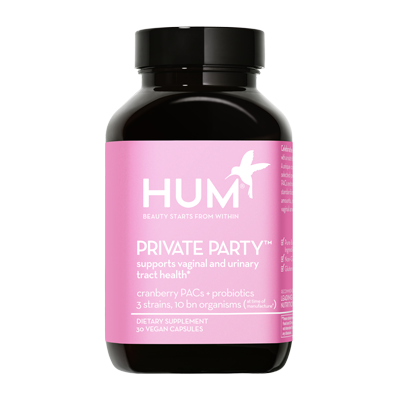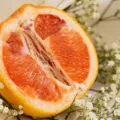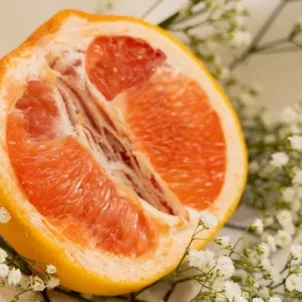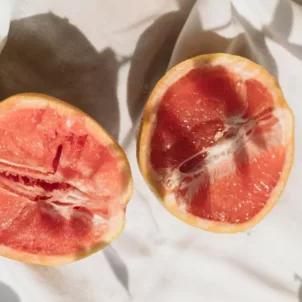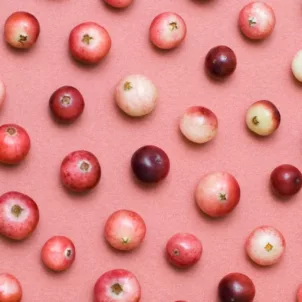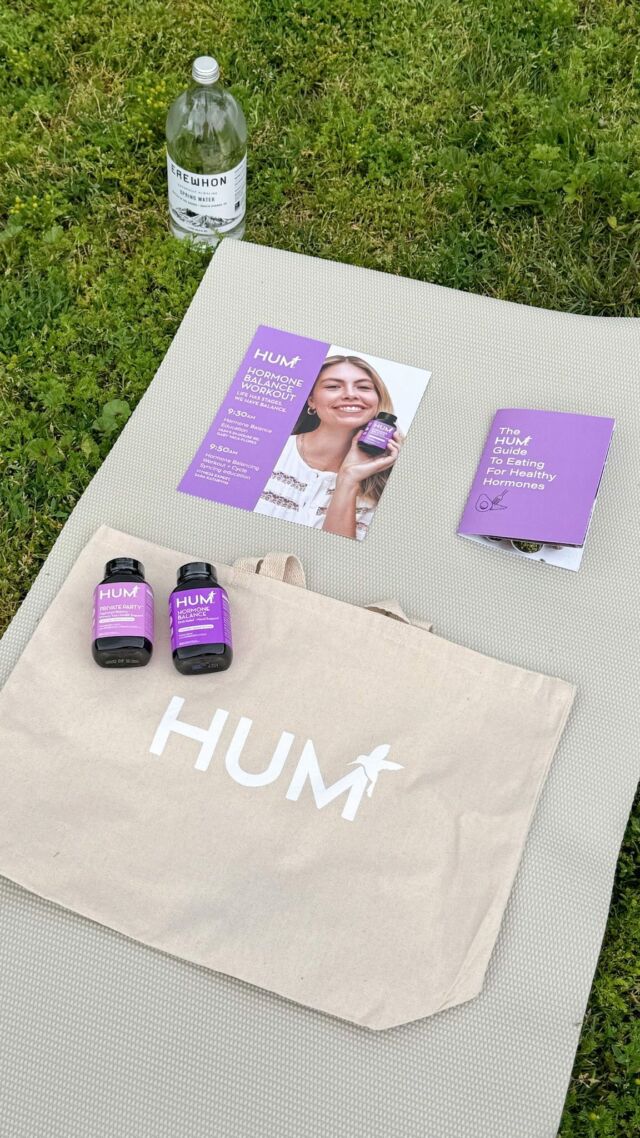In general, your vagina works to keep itself clean and balanced. But when things are off down there, it can get uncomfortable (to say the least). Infections and off-balance pH levels can cause itching, burning, discomfort, dryness, and more—all of which can affect your day-to-day life. Of course, visiting your doctor is your best bet in resolving any issues down there. But your diet can help keep things in check too. Some nutrients (or lack thereof) can have a direct impact on vaginal health, causing them to either thrive or be riddled with concerns such as dryness, irritation, inflammation, and infection.
Curious to know what the best foods for vaginal health are? We tapped two women’s health experts to learn more about naturally-cleansing foods to eat for optimal vagina health, plus how a balanced diet can make all the difference in our care down there.
How to Improve the Health of the Vagina
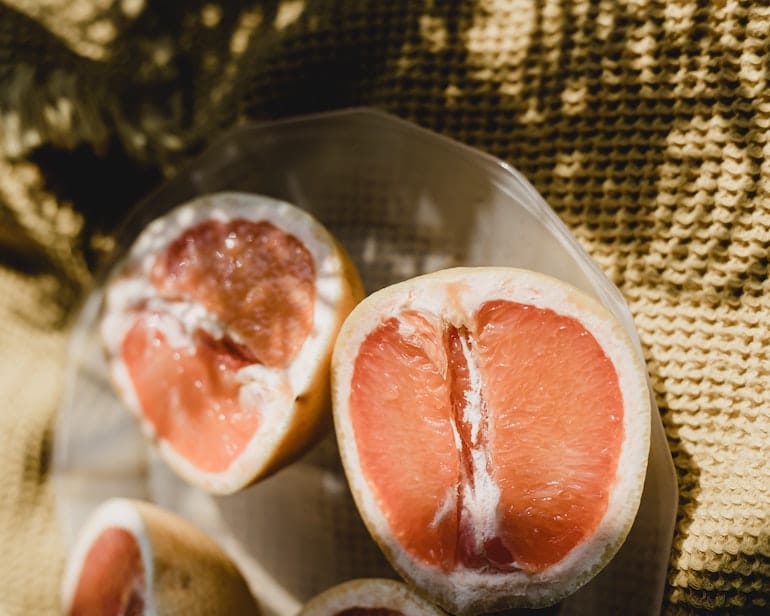
Just like the rest of our body, the way we nourish can have a steep impact on vaginal health, and eating a balanced diet can help improve the health of the vagina overall. “Eating a variety of healthy foods helps to ensure that the body gets all the nutrients it needs,” “Eating a variety of healthy foods helps to ensure that the body gets all the nutrients it needs,” says Krutika Nanavati, a registered nutritionist and dietitian with Nutrition Society New Zealand, advisor at ClinicSpots, and a PhD candidate at Massey University of New Zealand. Stick to these nutrition tips for a healthy vagina.
Remember Your ACDs
Not a typo! One way diet impacts vaginal health is through vitamin heavy hitters such as vitamins A, C, and D. “Certain nutrients are essential for maintaining vaginal health and, a lack of these nutrients can lead to problems,” Nanavati explains. According to Nanavati, a lack of vitamin C can result in dryness and irritation while vitamin D is essential for keeping vaginal tissues healthy. “Vitamin A is important for maintaining the acidity of the vagina, which helps to protect against infection,” she adds.
Aim for Organic
When eating a balanced diet, Kim Langdon, MD, an OB-GYN with over 20 years of experience, says to choose organic foods as much as possible, “because they don’t have pesticides which can be endocrine disruptors.” Endocrine disruptors are chemicals or compounds that, when absorbed into the body, increase or decrease certain hormone levels. How does this affect vaginal health? Research shows endocrine disruptors can harm female reproductive functions by causing subfertility, infertility, improper hormone production, menstrual cycle abnormalities, and early decline in reproductive performance. All of these can impact the balance of your vaginal pH and cause discomfort. While it might be hard to shop organic for every food item in your pantry and fridge, she recommends at least sticking to organic for the things you might consume regularly, such as eggs, milk, fruit, and vegetables.
Skip Ultra-Processed Food
Avoiding junk food or food deemed unhealthy is also vital in vaginal health efforts. The reason for this is that “foods that are high in sugar and simple carbohydrates can promote the growth of yeast, which can lead to infection,” Nanavati explains. Additionally, she says that fatty and processed foods contribute to and increase inflammation throughout the body, which can exacerbate vaginal dryness and irritation. “A balanced diet provides the body with all the nutrients it needs to maintain optimal health, including vaginal health,” she remarks.
The Best Foods for Vaginal Health
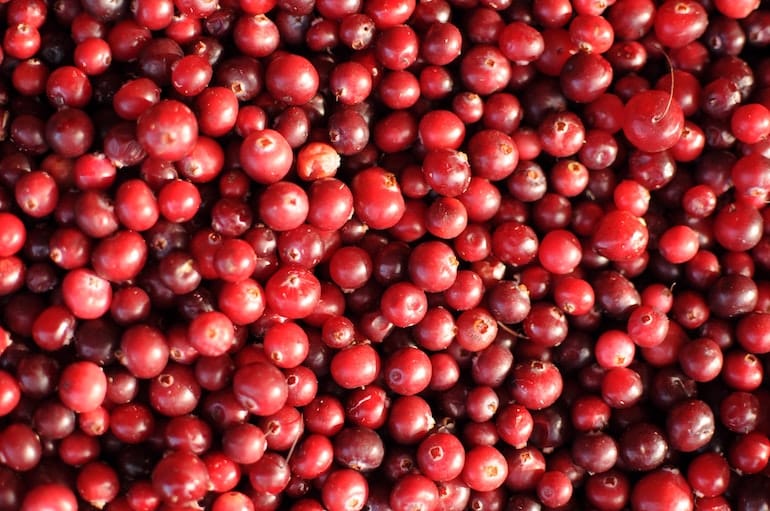
The first two things that may cross your mind when you think of vagina-friendly foods are probably cranberry juice for UTIs and yogurt for its probiotics. And yes, there is some truth to that! However, these aren’t the only top foods for vaginal health. Here are some of the best vagina-cleansing foods to add to your grocery list, plus more information on why yogurt and cranberry juice have so much star power.
Yogurt
Yogurt is often a top-recommended food by experts for vaginal health. This is due to its naturally occurring probiotics, “which are beneficial bacteria that can help keep your vagina healthy by maintaining its natural pH balance and preventing infection,” says Nanavati. To get the most out of your yogurt intake, choose plain yogurt, since other options can be high in sugar. You can also add a probiotic supplement to ensure you’re getting enough to support your vagina’s overall health. HUM’s Private Party contains three probiotic strains that specifically support a healthy vaginal microbiome.
Cranberries
“Cranberries are a rich source of antioxidants and have been shown to help prevent urinary tract infections,” Nanavati explains. Cranberries contain proanthocyanidins (PACs) which can help keep urinary tract infections at bay. While drinking cranberry juice has some benefits for urinary tract health, the amount of PACs depletes during processing. Plus, many juice options are high in sugar and other additives. Raw cranberries are another option, but the PACs also deplete during ripening, so you might not be getting a consistent amount. (And let’s be real: Raw cranberries can be a little bit bitter.)
Take the guesswork out of getting your daily dose of PACs by taking a supplement, like HUM’s Private Party. It contains a clinically-backed amount of cranberry PACs to support your urinary tract function. It also contains a potent blend of probiotics to help balance your vaginal microbiome and reduce the risk of other infections, such as yeast infections. PSA: You can still add cranberry juice and cranberries into your diet (they offer other benefits like antioxidants and fiber), but using a supplement will help you get a consistent amount of PACs to help ward off urinary tract infections and keep things running smoothly.
Garlic
When you’re sick, garlicky foods can sometimes do the trick, thanks to garlic’s impressive antibacterial properties. These properties also benefit the vagina “by fighting off harmful bacteria,” says Nanavati.
Citrus
As Nanavati mentioned, vitamin C plays an important role in vaginal health—and citrus is chock full of it. “Vitamin C helps boost the immune system and keeps the tissues of the vagina healthy,” Nanavati explains. Ensuring you get enough vitamin C can also help prevent vaginal dryness and irritation.
Kiwi
This might seem a little random compared to the other foods on this list but eating kiwi fruit is another great way to support vaginal health since it is high in vitamin C. In fact, kiwi has more vitamin C than some citrus, including oranges.
Leafy Green Vegetables
“Leafy greens like spinach and kale are packed with nutrients like vitamins A and C, which are important for vaginal health,” says Nanavati. “These nutrients help to keep the tissues of the vagina healthy and fight off infection,” she adds.
Salmon
Since salmon is a fatty fish, it’s considered a good source of vitamin D, which is another important nutrient for vaginal health, especially the health of vaginal tissues.
The Best Drinks for Vaginal Health
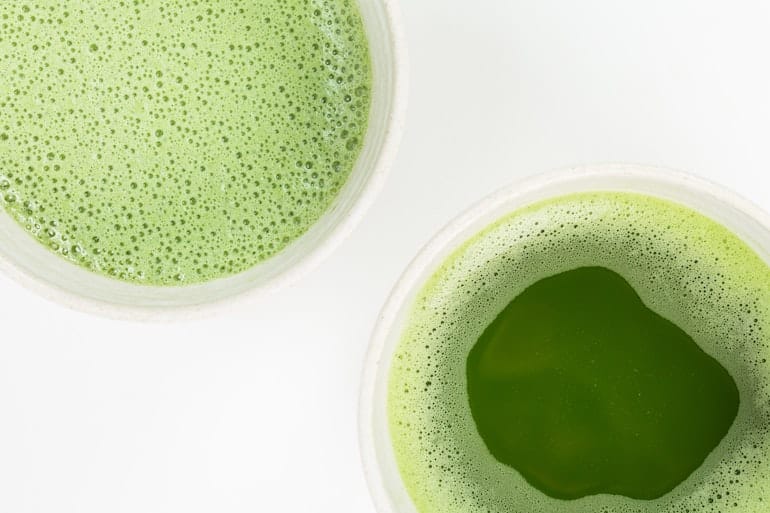
Per Nanavati’s insights, staying hydrated is not just important to your body’s overall health, but vital to vaginal health, too. If you’re wondering what to drink to make your vagina fresh, keep reading to see what experts recommend.
Concentrated Cranberry Juice
Concentrated cranberry juice has more proanthocyanidins and isn’t as high in sugar as cranberry juice cocktail. If drinking juice isn’t your thing, you can always add it to a morning smoothie—or opt for frozen cranberries—for a punch of antioxidants.
Green Tea
Green tea can help improve your skin and help heal wounds. But it can also help encourage a healthy urinary tract. That’s because it contains catechins (potent antioxidants) and other antioxidants that provide a strong antimicrobial effect, which could help fight UTIs. How does it work? When you drink green tea, these catechins pass through the urinary tract and decrease the bacteria—thus decreasing the risk of infection. Aim for two to three cups a day.
Does Drinking Water Help Your Vagina?
Water is also important as it can actually keep the vagina hydrated. Similar to the skin on your face, the vagina needs hydration to stay healthy. If you’re dehydrated, the skin around your vagina can become dry. The same goes for the inside of your vagina: Not drinking enough water can cause dryness, which can make it hard for your vagina to properly lubricate. If your vagina is consistently dehydrated, you can experience itchiness, burning, and pain. Plus, dehydration can throw off your vaginal pH, increasing your chances of a yeast infection (or making an existing one even worse.) So, drinking the recommended amount of water every day (eight to 12 cups a day) can help prevent dehydration and ensure your vagina is well-nourished with H2O.
